New York mobile sports betting ads flood market, target new users with 'seductive' offers
The first thing he saw was broken glass.
Sharp splinters littered the floor, cutting light between smiling faces in wedding photos. Walking inside the quiet house around midnight, his gaze locked on the shards. Kelly was gone, she must have been.
She saw the emails. She saw the charges.
“I'm telling myself all the things I've thought for all these years,” Steven remembered, his compulsive sports gambling once hidden behind screens. “‘You're a piece of s---. You're a piece of garbage. This is what you deserve. You finally lost your family. You're losing everything.’”
Slowly he started picking up jagged fragments, hoping he could salvage pieces of their life in upstate New York. Earlier that day, his wife had called to ask what DraftKings was. She put it together, he thought, gathering glass between loose wedding shots.
A year into recovery, Steven can't escape these images. Prolific advertisements serve as constant reminders of this addiction.
“Every other commercial I see, billboards everywhere I see it, almost every advertisement I see on my phone,” he said. “It’s just being shoved down people’s throats. It's like when cigarettes first started advertising this cool thing that everybody was doing — and then they were forced to put a label to say: ‘This can kill you.’”
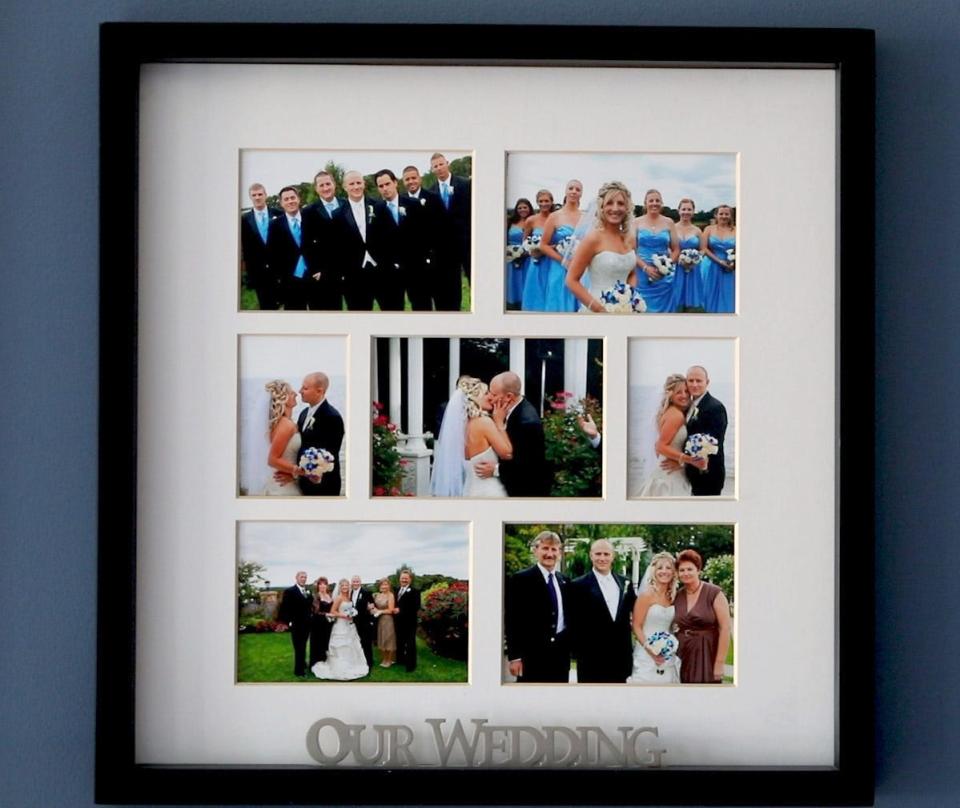
From Instagram to Facebook, Snapchat to Twitter, social media platforms feed ads between scrolls. Attempts to watch any sporting event on TV come with betting lines and commercials; listening to any radio show or podcast comes with sponsors like FanDuel, DraftKings and Caesars Casino.
Where there aren't physical posters and billboards towering over highways, online campaigns offer $1,000 welcome bonuses, betting matches and “risk-free bets” with strings attached.
Even familiar faces like Drew Brees — the fifth high-profile brand ambassador for PointsBet's U.S. marketing and second from the NFL — stream in living rooms across the country, telling audiences just how easy it is to place a bet.
Sports gambling has always been within reach, but today well over half a million New Yorkers battle a "hidden addiction" that now fits legally in the palm of a hand. And as young minds lie among targets of platforms on a quest to claim their market share, the perceived “bombardment” of advertisements seems to beg the question: How much is too much?
"It's much easier now, much more normalized," Steven said, his own gateway having been daily fantasy sports. "Not everyone likes to go to a casino. Not everyone likes to play cards. Not everyone likes to buy scratch-offs — but hundreds of millions of people, especially young men, love sports."
From a January launch, sportsbooks in the state saw $1.67 billion in online wagers in their first month, $1.53 billion in February and $1.64 billion in March alone. Together, those figures could finance five more Citi Fields, with millions in spare change.
Annual revenue in New York, after an aggressive 51% tax rate, could reach $1.1 billion by 2025, according to estimates from VIXIO Gambling Compliance, an industry trade publication and regulatory intelligence service. That would render it the largest betting market in the U.S. by far.
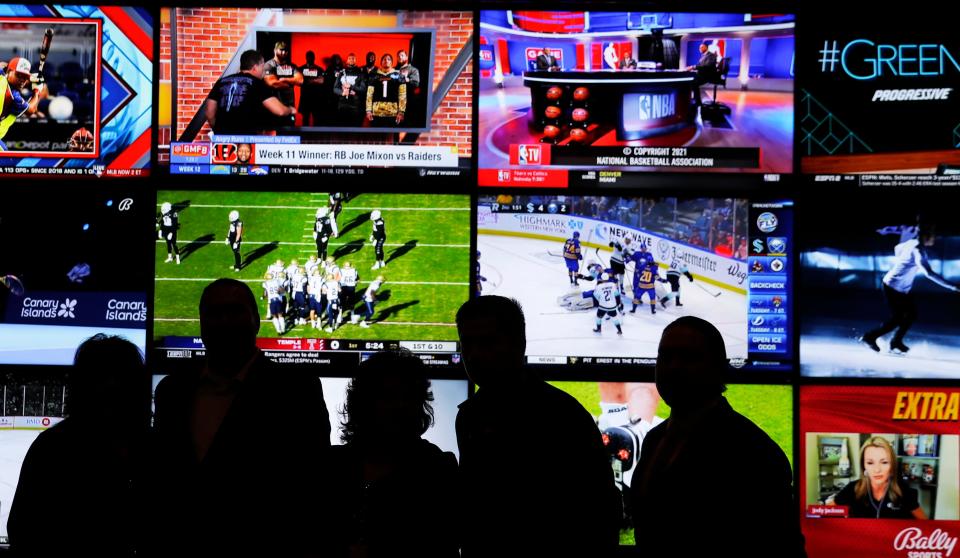
The newest way to gamble is shot into orbit by its prolific marketing.
Just 33 days after launch, as a Super Bowl neared, Attorney General Letitia James issued a public warning that consumers were facing a "bombardment of misleading ads” from “predatory and misleading sports betting platforms.”
"Advertising has been probably the biggest topic of discussion,” said Michelle Hadden, assistant executive director of New York’s Council on Problem Gambling. “People are already sick of seeing it so much, and it being driven to them personally through online platforms.”
Experts cite a focus on young male betters in this advertising. There's hope to pull them away from illegal sites, diversify the age groups once typical of casinos and grow platforms' footholds.
"We know that young males tend to have the highest rates of gambling participation and gambling problems," said Keith Whyte, the National Council on Problem Gambling's executive director. "And that also appears to be the group that is most heavily targeted for new online sports betting marketing."
Craig Carton: The incredibly ‘not unique’ story of sports radio host's addictive gambling
Beyond general rules to “prominently display” the problem gambling HOPEline, as the New York Gaming Commission noted, little exists to further regulate these promotions. This new wave of ads is subject to the same code as traditional casinos, according to commission documents.
January saw 46% more contacts to that helpline, compared to 2021 — 198 to 289, according to NYS Office of Addiction Services and Supports — while February came with a roughly 40% jump.
The American Gaming Association launched a “Responsible Marketing Code for Sports Wagering” in 2020, now seen as the industry standard. The voluntary code primarily outlines how to avoid targeting people below the legal age for sports wagering and support messages of "responsible gaming."
“When we talk about responsible gambling, the question becomes: Who should be responsible? The player or the industry or both?” posed Jeffrey Wasserman, an advocate running an international online recovery community, alongside service as a director with Delaware’s Council on Gambling Problems.
“This whole notion of almost seducing people to gamble ... I think the standards have to be much more rigorous when we're talking about a product or a service that is potentially harmful for certain segments of the population."
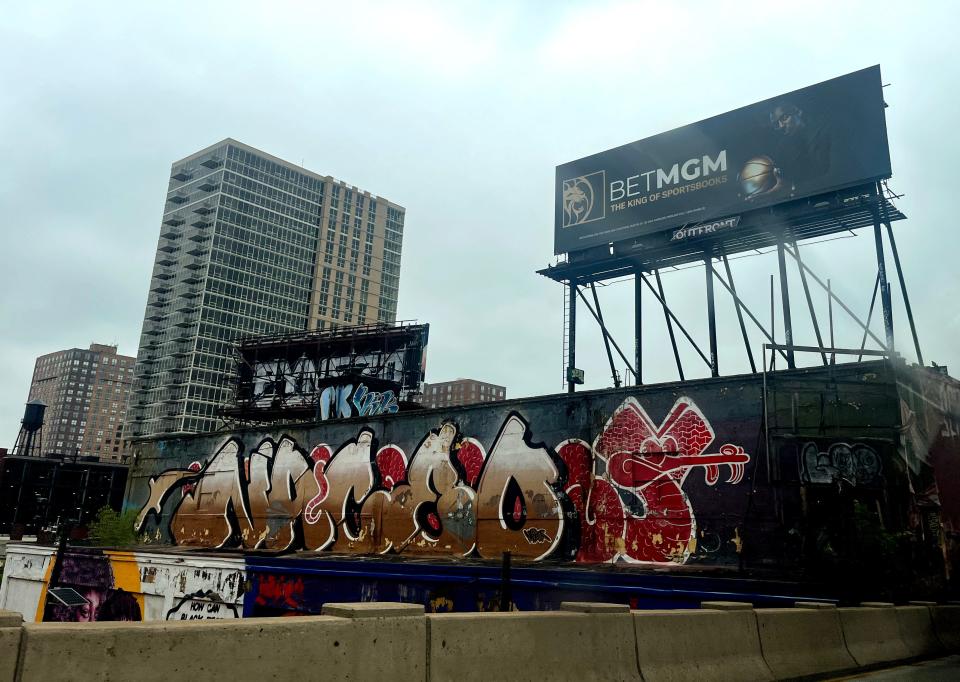
As an addictive activity meets a smartphone screen, advocates like Wasserman worry similar growth is headed to problem gambling. He has already added two new meetings to accommodate a growing number of members under 30.
Any marketing regulation headed to the Empire State is not easily pinpointed. Broad solutions may be complex, requiring federal regulatory changes, as stations and streaming sites base across different states.
Whyte expects more conversations to come at every level.
"We're hearing from legislators and regulators at the state and national level," he said. "Their constituents are telling them they're concerned about the amount of sports betting advertising during sporting events.
"The hard part is, what to do about it."
Boiling point
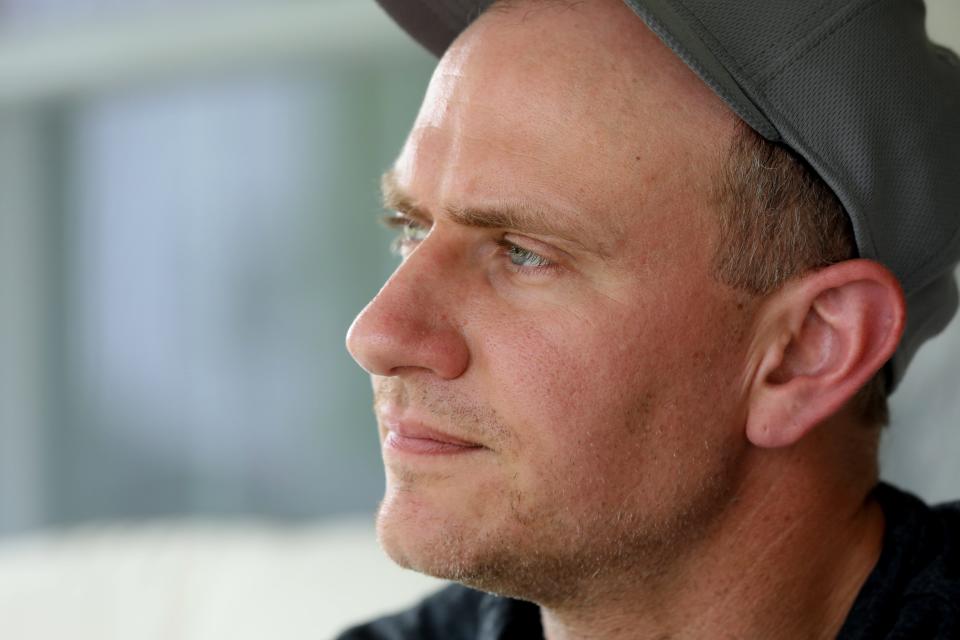
Kelly sat at the table, staring.
"How could he do this?" she remembers thinking, as emails from a fantasy sports operator and credit card statements stared back.
It was innocent. Casual fantasy sports betting started as Steven's hobby for over a decade. He always loved the Mets, the Jets and the Knicks. Their family chose to remain anonymous for this story, due to receiving threatening messages following previous instances of sharing their experience.
Kelly's calls and texts to Steven went unanswered all afternoon, as she put her own pieces together.
The New York native had caught her husband once already. His habits turned compulsive in 2017, while the pair in their 30s lived with in-laws to save for their house. But having threatened to leave with the kids, Kelly never imagined he would start again.
She hadn’t understood the addiction. She thought recent distant behavior could mean he was cheating.
Instead, he borrowed all he could from his 401k. He maxed out credit cards, chasing thousands in losses. At one point, a platform rewarded him for spending over $500 a month on sports betting.
“I smashed our wedding picture frame. I was going to smash everything in the house, I was so angry,” Kelly said, recalling 2021 memories from the same living room. “I was just pacing back and forth. I didn't know what to do because, honestly, I thought our marriage was over.”
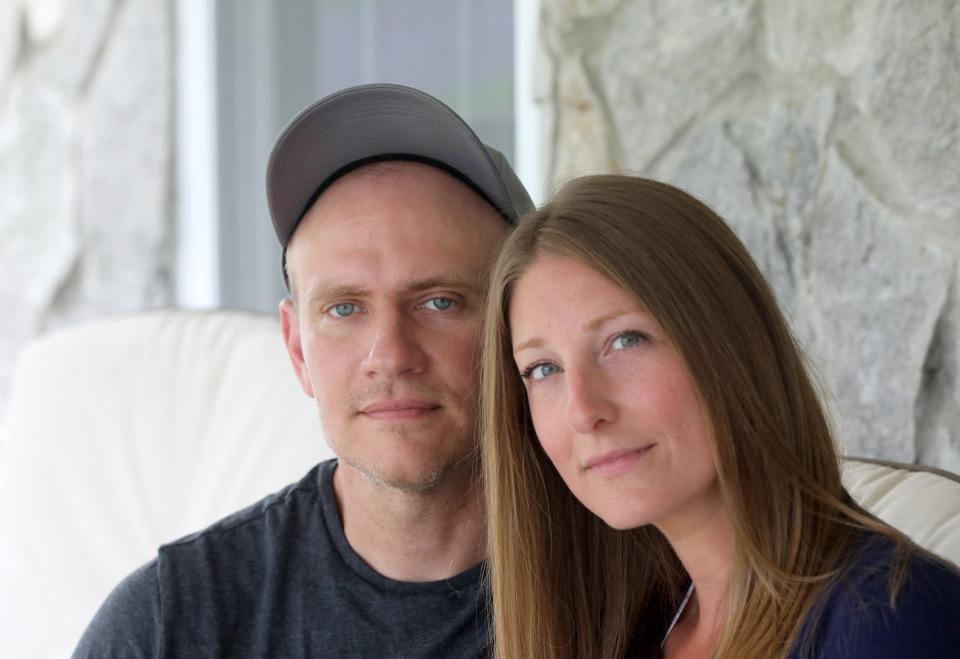
That night, her body was too drained to drive to her parents on Long Island. She left the kids with Steven’s mother.
Hearing the shuffle of broken glass, Kelly came to the doorway. She credits pure exhaustion for allowing them to discuss everything in the kitchen that evening.
A long road to recovery began, after a casual habit turned toxic.
“You put a frog in a boiling pot of water, he's gonna jump out. He's gonna feel the burn,” Steven said, fiddling with a cup of tea in front of him. “When you put a frog in a lukewarm pot of water and just slowly turn the heat up — he's not going to know until he boils to death.”
Survey says ...
Steven remembers fantasy sports advertised as a game of skill.
It pulled him in, thinking he had a special talent while he watched. Early on, he didn’t even see it as gambling.
“Sports betting and daily fantasy are the same things as blackjack, as roulette,” he said, Kelly nodding beside him. “It's just a different form.”
Two years before online sports betting launched, over 70% of adults in New York State didn't gamble at all, according to a state survey on gambling prevalence.
The survey saw 14.6% of adults who did gamble in 2020 met criteria for problem gambling, while just over 4% — or about 600,000 people — experienced problems related to their gambling.
The youngest age group, 18 to 24, has the highest risk. Communities of color, alongside lower income brackets, also faced higher rates of gambling addiction.
As for who’s gambling on their phones today, the state says it “does not track demographics.”
National: California voters will decide whether to join online sports betting frenzy in November
Subscribers: The good, the bad and the ugly of Yankees' Josh Donaldson, on and off the field
The wagering is account-based, ensuring age and identity, and the commission says devices are geolocated. Commission regulations call for offering deposit and wagering limits, time played and cooling off periods, alongside the state’s self-exclusion plan.
So most users could simply see ads and take up new entertainment. Right?
“Most people can control it,” Wasserman agreed, his gambling recovery group in the back of his mind, some members having difficulty even watching sport broadcasts now.
“Does that mean we ignore the people who are harmed? Do we ignore the fact that gambling disorders have the highest rates of suicide attempts or ideation compared to any other addiction?"
Industry leaders see things a bit differently.
They see an illegal marketplace that's had a decades-long head start. Early months of mobile sports betting in New York have been all about “customer acquisition” — all-hands-on-deck grasps for a foothold in an evolving industry.
“Americans have been betting on sports for as long as there have been sports to bet on; it's just that now they have legal opportunities to do that,” said Casey Clark, senior vice president with the American Gaming Association. “And part of what is necessary to drive that illegal market out of businesses is to create viable and sustainable markets to attract American consumers.”
What would change look like?
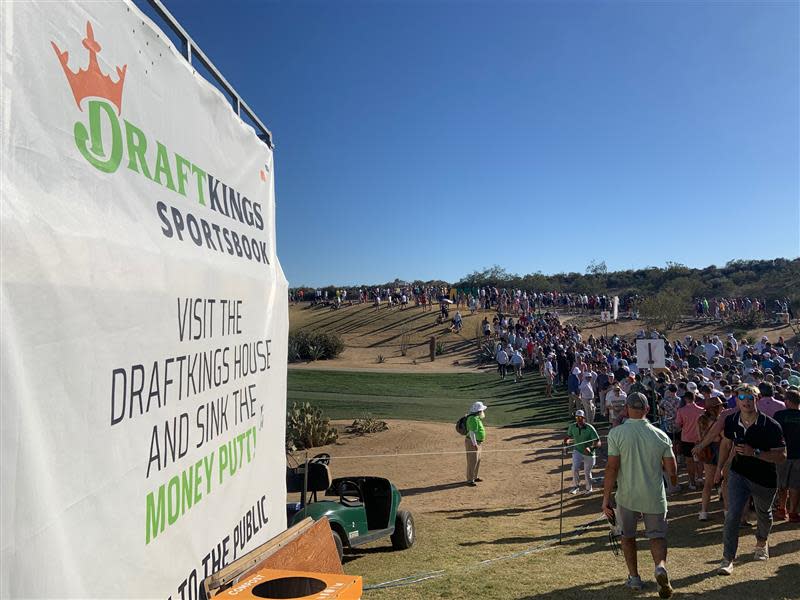
Gambling operators had to spell out their marketing plans — from acquisition efficiency to digital advertising — when pitching for licenses with New York State Gaming Commission.
Capacity to “rapidly and efficiently” bring in bettors was measured in the state's bidding process itself.
Today, different strategies play out across operators. Some have grown partnerships with teams and television networks, allowing content to merge with sports programing.
Steven can hardly tune in anymore.
"Betting is just going to become hand-in-hand with sports," he fears. "It's going to be: You can't watch sports without thinking of betting."
Nationally, though various operators vie for gambling dollars, three companies handle over 80% of online sports betting. And in that, FanDuel maintains nearly double the market share of No. 2 DraftKings, VIXIO reported in 2021.
Sports betting is legal in some 30 states, while 18 allow sports betting online. Over $120 billion in bets have been placed nationally since legalization — nearly the combined GDP of Guatemala, El Salvador and Honduras.
Clark said the market may shift naturally.
Saddled with a 51% tax rate heading to New York, companies' billions spent on advertising strategies can pose a sizable gamble themselves.
In early May, for example, BetMGM CFO Gary Deutsch said he could no longer justify the company's spending on marketing in New York, calling the tax rate “unsustainable." The company will now be cutting back on advertising in the state.
As markets mature, Clack said he expects the user-recruitment press to abate, while “customer service is the new name of the game.”
Marc Edelman thinks expecting self-regulation is illogical.
“The goal of business is to maximize profits,” said the law professor and sports ethics director of Robert Zicklin Center on Corporate Integrity, with City University of New York. “Consequently, if you want to encourage businesses to behave in a manner that does anything other than maximize profit — the role falls on the regulating government agency.”
Edelman, who advises certain companies in the fantasy sports marketplace, said the state should consider stronger rules limiting the hours sports gambling companies can advertise on TV, to reduce the incidental targeting of minors, as well as prohibiting leagues from displaying advertisements on their main webpages for the same reason.
New York horse racing under attack: Animal rights groups challenge $230 million subsidy
Dying horses: New York's horse racing industry contends with drug, slaughter scrutiny
The International Gaming Institute recommends restrictions pertaining to sports wagering messaging on certain social media accounts, "especially" platforms that are popular among teens: like Instagram, Tik Tok and Snapchat.
More mature markets give a peek ahead.
In the U.K., operators agreed not to advertise immediately before, during or after televised sporting events, unless after 9 p.m., as echoed by other European markets. Portugal and Spain ban until late at night. In Ontario, similar to other countries blocking bonuses, ads cannot include any inducements, like “free-bet” offers.
Italy prohibited all gambling advertising in 2019.
But U.S. legislators and regulators have yet to “truly take action” against the volume of sports betting advertising, VIXIO Gambling Compliance noted in its advertising outlook for 2022.
“There'll be some kind of policy shift in coming years,” said chief analyst James Kilsby. “Exactly what that looks like, where it first percolates, how the industry reacts to it? That's yet to be determined.”
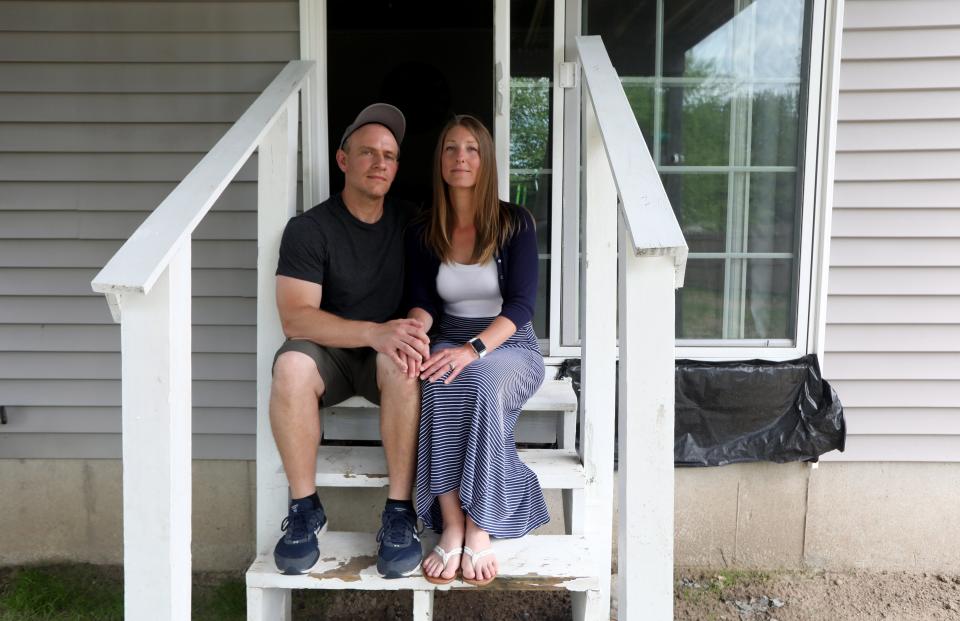
The same digital accessibility of mobile sports betting that may bring worry to advocates can also bring hope.
Steven and Kelly found strides in recovery through therapy, podcasting and a bolstering recovery community online.
"I thought that I had to fix this on my own, which just ended up pushing me deeper and further away," Steven said. "The best thing to do is to come out and tell someone, to come out and reach out for help."
Kelly Powers is a culture reporter for the How We Live team — covering race, culture and identity for the USA TODAY Network's Atlantic Region. Contact her at kepowers@gannett.com or (443-694-0770, and follow her on Twitter @kpowers01.
This article originally appeared on USA TODAY NETWORK: Will mobile sports betting ads change in New York? It's complicated

